Detailed Guide: How to Plan a Trip
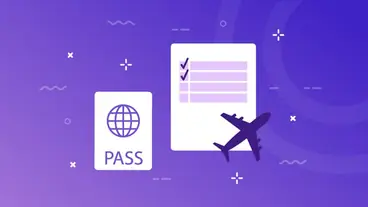
Our friends and acquaintances keep asking how we plan trips. So, we decided to share our experience in this detailed travel planning guide. Below, you’ll find our tips and recommendations for services that will help you plan your trip easily.
If you’ve ever thought about planning your own trip, we think you’ll like this guide. And for experienced travelers, we prepared a few advanced travel hacks.
Contents
1. Choose a Destination

When planning a trip, we first decide where to go. Sometimes, we pick a specific destination. We might choose a country based on the invitation of our friends, airline discounts on a particular destination, blog articles, or Instagram pictures.
Other times, we don’t know where to go, and need to seek further inspiration. In that case, we consider what type of trip we want to take, the available opportunities, our potential travel companions, and the weather.
Who will you travel with?
You can travel alone, as a couple, or with your friends and even strangers. It’s important to take into account the desires of all participants. A trip with friends is also a good way to see how strong your friendship is.
If you’re traveling alone, you should also seriously consider your safety.
Set your traveling budget
When choosing a destination, check accommodation and transportation prices. The farther the destination, the larger the budget you’ll probably need.
Check accommodation prices when booking tickets and vice versa. It will help you pick the best option.
Choose a type of travel
Are you looking for a sightseeing tour, a trip to the mountains, or a beach vacation?
Use these popular resources to get inspired: tripadvisor.com/TravelersChoice-Destinations and lonelyplanet.com/best-place-to-be/today.
Instagram will come in handy, too. If you can’t pick a specific route after choosing a destination, such as Europe, search by the hashtag #traveleurope
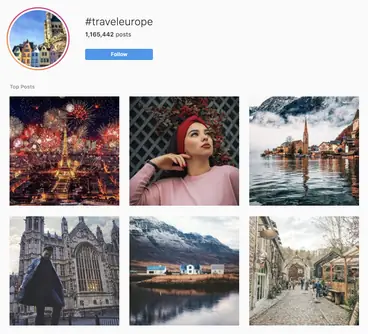
If you want a beach holiday, experiment with such tags as #bluesea and #paradisebeach
Besides, Instagram offers real and minimally retouched pictures of locations.
And use a price comparison site; don’t specify your final destination, and this tool will display price options on the map or as a list.
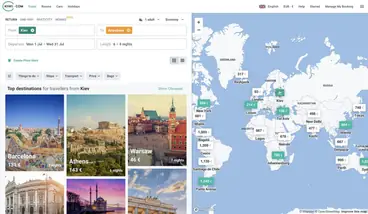
You don’t have to choose only one place. Travel to a few countries or cities in addition to a beach holiday.
When planning our trip to Greece to explore the azure beaches of Chalkidiki, we found an alternative that allowed us to replace the flight from Kiev to Thessaloniki with Kiev to Munich and Munich to Thessaloniki flights. It was cheaper, and we were able to spend 2 days in Munich.
After choosing a destination, learn the local rules and laws by reading the blogs of travelers or compatriots who are now permanent residents of that country.
Trip duration and travel dates
Look for information about your chosen destination, consider a number of sights, and determine the ones you want to see. For example, allow 2 days for exploring Tallinn and spend the rest of your vacation on the Baltic Sea cruise. If you want to go to Barcelona, allow at least 3 days for exploring the city.
Analyze weather conditions each month: air and sea temperatures, wind strength, and precipitation.
Pay attention to national holidays when choosing your travel dates. If you go to Germany in late September, for example, you’ll get to experience 2-week Oktoberfest. This is when the city is crowded with people, musicians, and citizens in traditional Bavarian costumes. Try the festival beer in tents or beer gardens.
The Day of German Unity is celebrated on October 3rd. This day, German people take a day off, and most of the establishments and shops are closed. You can’t go shopping on this day, but you can benefit from half-empty city streets.
Seasonality
Choose the beginning of the season or its end (which is even better) because you can advantage of lower prices on flights, hotel rooms, and car rentals. Fewer travelers are another benefit! It’s better not to visit some popular destinations in high season.
When planning a beach holiday, you should choose the end of the season because prices are lower and resorts aren’t so crowded. The air temperature is lower and the sea is still warm. Cyprus is one such example.
2. Prepare Documents
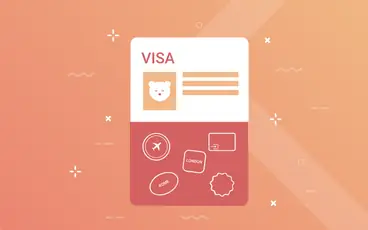
Passport
If you still don’t have a foreign passport, keep in mind that it will take up to 20 business days to receive it. If you do have one, check when it expires. Also, check its required period of validity on the official website of the consulate of the country where you want to go. In most European countries, for example, a passport must be valid for another 3 months from the expected date of completing a trip.
Visa
Remember that you may need a visa. Here you can select your passport and check if you need one passportindex.org If it’s necessary to get a visa, consider the time you need to gather and submit documents or your online application and for the consulate to issue it.
3. Booking Tickets
Flights and accommodation are major traveling expenses. Airlines can change the price on a flight a few times a day. So, check what day of the week or time of day is more reasonable for ticket booking.
Plan ahead
You should book flights before booking your accommodation. The earlier you book tickets, the more time and accommodation options you have to choose from.
Airlines offer sales from time to time. Follow airline social media feeds to see when their best deals are. Also, subscribe to the newsletters of price comparison sites to ensure you don’t miss any discounts.
Sales often last from February to March and from October to November. Airlines typically offer promotions on Halloween, Black Friday, Christmas, Easter, and their anniversaries.
Be flexible with dates
Choose the best dates, days of the week, and time of departure. Prices are usually lower on flights on Tuesday, Wednesday, and Thursday than on weekends and holidays.
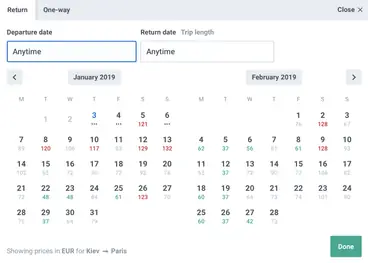
Use special services in your search
Use Skyscanner/Kiwi/Google Flights to find affordable flights.
You can also use a new service on the KIWI website – NOMAD – to plan your trip to a few destinations.
How is the NOMAD service beneficial?
Specify a date range, the cities you want to visit, and the duration of your stay in each one to let the service offer the best flights!
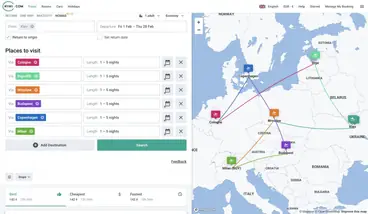
A trip around the world that is cheaper than €1000.
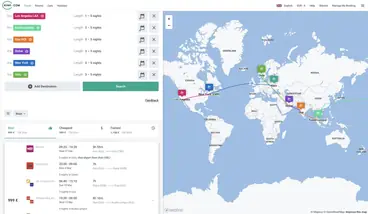
We use these services only for searches, and we book tickets on the official websites of airlines to participate in their loyalty programs and avoid paying the intermediary service.
Choose low-cost airlines
When booking short-haul flights that last less than 6 hours, it’s better to choose low-cost airlines.
Cons: they use remote airports and schedule flights on early mornings or late evenings.
They affect transfer expenses from the airport to the hotel and vice versa, limit accommodation choices to hotels with a round-the-clock/late check-in or apartments with a code lock.
Pros: lower prices and newer aircraft. The average age of the Ryanair aircraft is 6.5 years whereas the average for KLM is 11.4 years.
To get the most out of low-cost flights, you need to…
Travel light
Take only your carry-on luggage. This tip will let you avoid paying extra for your baggage.
You don’t need to go to a check-in desk in many airports after your online check-in if you don’t have any additional baggage. Besides, you won’t lose any time waiting for it after landing. Another benefit of traveling without baggage is that it won’t be lost.
Use tricks…
Buy a round-trip ticket even if you’ll use only the first segment.
In many airlines, round-trip tickets may be the same price or even cheaper than one-way tickets. In this case, buy a round-trip ticket, even if you won’t use the return flight. Shipping companies work the same way.
When traveling in Baltic countries by car, we took the ferry from Tallinn to Stockholm. However, we didn’t book two separate tickets: Tallinn-Stockholm and Stockholm-Tallinn.
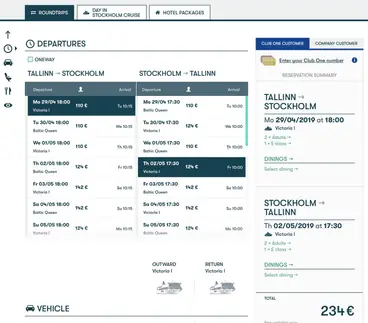
It turned out that it’s cheaper to book two cruises, Tallinn-Stockholm-Tallinn and Stockholm-Tallinn-Stockholm, and use the first leg of each ticket.
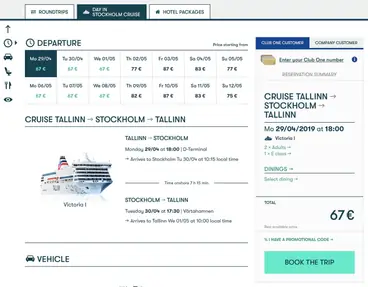
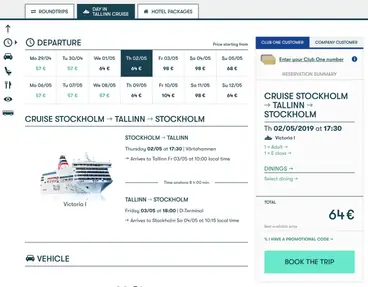
Add a transit city
Add a transit city to your flight. Sometimes, it reduces your flight price.

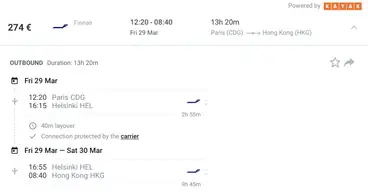
If you have a single ticket going from Paris to Helsinki to Hong Kong, the airline guarantees a connection. If the first flight delays, it will provide you with other options to get to Hong Kong and compensate your expenses according to its rules.
Even if you have two separate tickets of the same airline, Paris-Helsinki and Helsinki-Hong Kong, check how much connection time you have. If the first flight is delayed, you may not be on time for the second one. In that case, you should have at least a 6-hour connection.
If there’s enough time between your flights, explore a transit city. Spend the whole day or stay even longer in that location. Use the “stopover” – a service that some airlines offer for an extra fee or for free.
Turkish Airlines, for example, offers a free stay in a 5* hotel for 2 days when traveling the business class or in a 4* hotel for 1 day if you fly the economy class.
A transit city as a travel destination
You can use only the first leg of your ticket and stay in the transit city. However, you shouldn’t buy a round-trip ticket in that case, as other legs on the ticket will be canceled after you don’t show up.
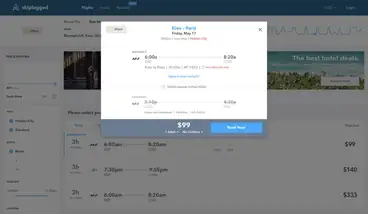
Read the airline rules carefully because you may have to pay a fee for your non-appearance or specify the conditions under which you’re obliged to warn the airline. In rare cases, you can even get a refund for a part of your ticket price.
If you use this trick, you should travel only with carry-on luggage.
Book a tour if it’s more affordable than booking a flight and accommodation separately
Take, for example, our trip to Dubai on the New Year’s Eve. We were lucky to find an inexpensive tour in a new 4 * hotel with breakfasts and transfer from the airport, and it cost only a bit higher than a separate flight.
Get ready for ticket booking
- Look for tickets with a passport and money at hand to be ready for ticket booking. Prices may change, and great deals can be unavailable in just a couple of hours.
- Check your card limits for online shopping.
- Use special bank cards that give extra cashback or miles for booking tickets. If you fly less than 3-4 times a year, opt for a cashback because it’s unreasonable to collect miles in this case.
- If you don’t want to open a bank card, use online cashback services, such as ebates.com. These services work by they sharing a part of their affiliate commission earned after booking.
- Check if there’s any affiliate program between the airline and booking.com or rentalcars.com. For example, if you fly with Wizzair and want to book accommodations on booking.com, do so the affiliate link on the Wizzair website and use your membership number to get a 10% refund of accommodation expenses to your Wizzair bonus account.
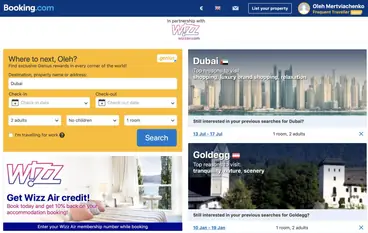
Remember that they will expire in 6 months.
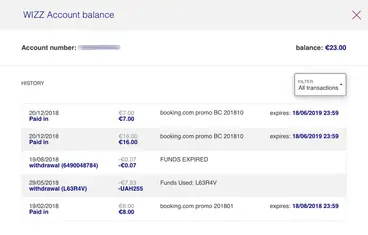
4. Accommodation
Your accommodation choice depends on personal preferences: whether you prefer a hostel or a hotel room and if you need a kitchen, a washing machine, room service, air conditioning, or Wi-Fi.
When it comes to the price, the closer to a city center or tourist attractions, the more expensive the accommodation will be. It’s cheaper to book a room in a hostel than in a hotel. However, a hotel room outside a city center can cost the same as a hostel in the center. Tourists strike the right balance in terms of prices, convenience, and location.
Using one of the services for finding accommodations, we found the €10 offer in a two-man tent in the center of Barcelona. In one of the courtyards of Barcelona, we even saw a tourist staying in a tent.
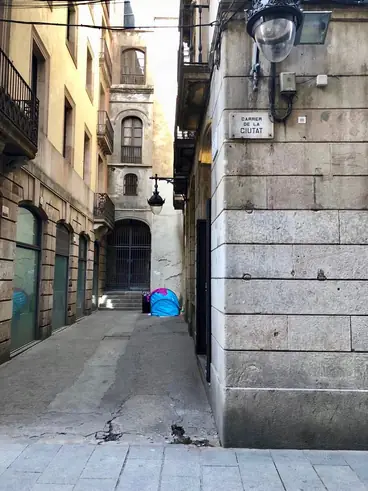
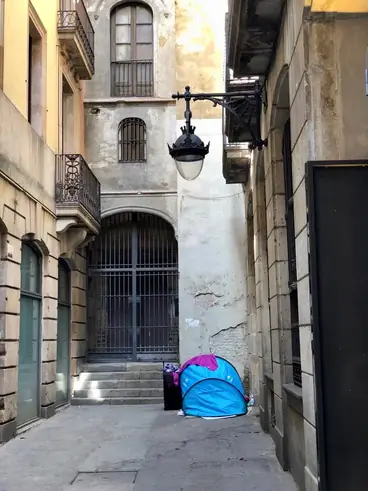
It’s more affordable to book accommodations in advance because you get more options to choose from. For Austrian ski resorts, for example, you need to book everything at least half a year or even one year ahead.
Services for booking accommodation:
- airbnb.com is the service for finding accommodations that we use most often, as there are many authentic options listed here.
- booking.com – is a universal engine that offers different types of accommodations: from tents and hostels to luxury hotels and villas.
- hostelworld.com – is a site with hostels from all over the world, and it claims that there are about 36,000 hostels to choose from.
- hoteltonight.com – is a last-minute hotel discount service.
- cancelon.com and roomertravel.com are sites you can use to redeem someone else’s reservation at a discount or sell your non-refundable reservation if your plans changed.
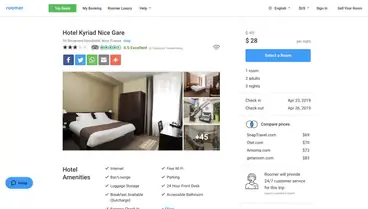
Common types of accommodation, their pros and cons
Hostel. It’s one of the cheapest accommodation types. Tourists get only a bed in the room, and amenities are shared. Accommodation is in a shared room for 4-16 guests. Sometimes, there are rooms for one or two guests.
It’s suitable for a short stay.
Cons: shared amenities, low security (keep valuables in a safe or with you at all times), the noise made by other guests
Pros: low prices, opportunity to meet interesting people, location (in a city center or nearby public transport routes).
Guesthouses. Houses where each room is rented separately. There are rooms with either private or shared amenities. Homeowners often live in the same house.
Cons: limited check-in times, the need for sharing amenities with other guests.
Pros: cheaper than hotels, hominess. 
Hotel. It’s the most common type of accommodation for travelers. Rooms offer private facilities with no kitchens.
Pros: room service, many services to choose from.
Cons: higher prices, a large concentration of people.
Aparthotel. It is an apartment-style accommodation that combines the comfort of your own home with the additional services of a hotel (spa, gym, room service, concierge).
Pros: kitchens and washing machines, suitable for a long-term stay, rooms are fewer than in a hotel.
Cons: fewer services than in a classic hotel.
Apartments or houses for rent. They’re in residential complexes or areas where local people live. These are a good choice for travelers who would like to participate in local life and explore the culture.
Pros: independence, atmosphere, space.
Cons: no additional services.
B&B (bed and breakfast) hotels. They provide a bed and breakfast in a person’s home. Having breakfast with the host saves time, and it’s often cheaper than having breakfast in local establishments.
Pros: home-cooked breakfast, price.
Cons: the 24-hour reception desk is often missing. 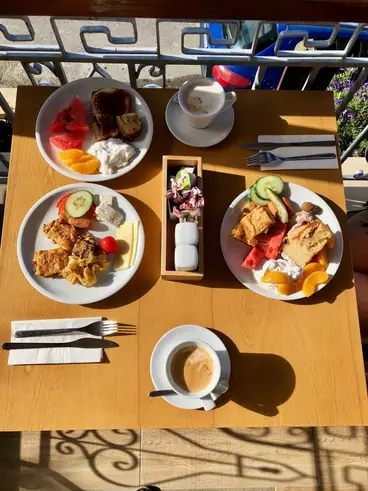
When choosing your accommodation type, consider the country where you want to travel. Choose any type of accommodation in European countries. But it’s better not to book any accommodation from private individuals in countries where it’s not safe, so you should choose hotels.
Rent a traditional house with an authentic interior in Greece or Italy. It will leave you with an unforgettable impression, unlike a standard hotel. 
When booking your accommodation, pay attention to these factors:
- Reviews on the site where you’re booking it and on Google.
- Check-in time: if you arrive in the evening or at night, choose an accommodation with 24/7 or self check-in.
- The flexibility of canceling your reservation. Sometimes, a part of the price is charged for cancellations.
- Is a tourist tax included?
- Sometimes, a separate fee is charged for electricity and air conditioning, so keep that in mind when choosing your - accommodation.
- Parking: when traveling by car or renting a car, pay attention to the availability and the price of parking near accommodation options.
- Budget accommodations include only towels, so we advise you to bring a pair of disposable slippers
If your budget is limited
It’s not a reason to cancel your trip. Look for alternatives:
Couchsurfing.com is an international online hospitality service. After registering on the site, you can host guests and visit other people yourself for free. If you’re ready for couchsurfing, remember that hosts can be different people. There are 400,000 hosts on the site. Of course, you must respect the hosts’ lifestyles and house rules. They also like traveling, and you’ll always meet like-minded people and even make new friends.
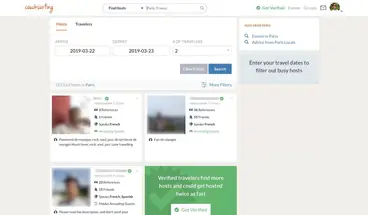
Free accommodation in return for looking after the house and pets:
mindmyhouse.com – register for $20 
housecarers.com – annual subscription for $50
trustedhousesitters.com – annual subscription for $119 
Services where you can exchange accommodations for a while:
homelink.org – annual subscription for $140
homeexchange.com – annual subscription for $150
5. Transport in Your Destination
Public transport
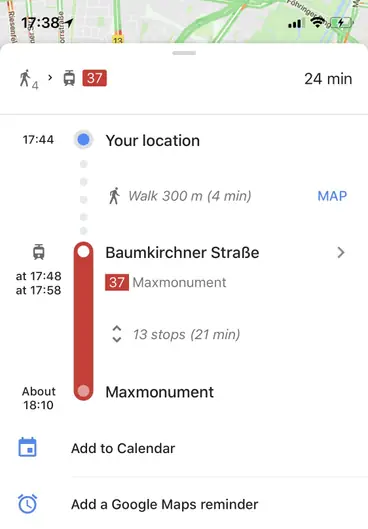
In Europe, high-speed trains, subways, or buses regularly go from airports to city centers. You can take a taxi, order a transfer, or rent a car for the whole trip.
If your goal is to explore a city center, use public transportation. Everything is within walking distance in Amsterdam, for example, and you can get to wherever you want to stay by tram or subway, even if it’s not in the city center.
When planning your trip, pay attention to prices and ticket types. Look for information on where and how to buy them.
Google Maps helps you to get directions everywhere!
Car rentals
If you have your own means of transportation, you can stay on the outskirts of the city or further from the coastline if you’re planning a beach holiday. This option is often cheaper and increases your number of available accommodation alternatives to choose from.
Consider gasoline and parking expenses as well. In most cities, the historical part is for pedestrians; there are only a few parking lots in the center, and they’re expensive.
It’s convenient to rent a car if you will travel between cities. For example, if you want to explore Italy from Venice to Palermo in addition to Cyprus or Crete, renting a car is a must.
Rent a car from home (you need to prepay with your card) because prices are higher in airports. Prices can also be cheaper in local offices, and it’s possible to bargain. However, you may not find a suitable car in high season, or you won’t have enough time to read company reviews.
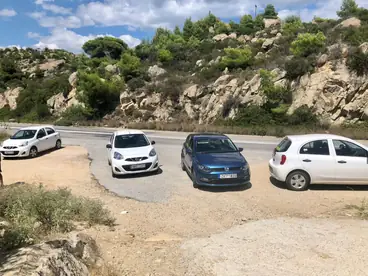
6. Plan your activities
Here are three ways to plan your trip’s activities.
First, make a plan, marking the cafes, museums, and attractions you want to see.
Second, contact local guides or friends who will take you on a tour.
Third, don’t plan anything!
1. Make your plan!
Plan everything if you want to know when and where you’ll be during your trip. Use online services for planning: mark interesting places on Google maps or use such apps as Google Trips, tripit.com, or inspirock.com. They allow you to save routes offline and find recommendations.
Read the blogs of experienced travelers to get inspired. For example, look at a post on a trip to Cyprus.
Stay realistic when making your plans. Choose only the most interesting items. Take into account your travel time and daylight hours. If you want to visit many interesting places, plan your trip in the summer to take advantage of the longer daylight hours.
2. Contact guides
The best site that offers the services of local guides I’ve found is getyourguide.com.
There are also free tours. Search freetour.com or enter “free walking tours” and the city name in the search box.
3. Explore!
Do not move from a starting point to your final destination on the offline map. You can explore and ask locals for their advice and recommendations. This method is great for exploring cities. Do pay attention to crime rates and unsafe neighborhoods, though.
7. It’s Time to Pack
Check the weather forecast a few days before your departure to make it easier to choose your outfits. We follow one rule: the less, the better. You can buy clothes when you arrive.
Check the limitations of the size and weight of carry-on luggage with your tickets. Don’t take any baggage if possible. Put your valuables and necessary items in your carry-on luggage. Hang a tag with your name and contact information on it.
What else to do before your trip?
- Notify your bank that you’ll use be using your card abroad and, specifically, in what countries and for how long you’ll be doing so.
- Take some cash. Make sure that you have $100 on your card and use another card or savings account of the same bank to replenish it as needed. If your card is stolen, you risk losing only $100.
- Check in online if the airline has this option. Check roaming tariffs on your phone and how to switch to them. It’s often more affordable to buy a local SIM card and the Internet package than using roaming.
- Buy travel insurance. Also, make copies of your travel documents and upload photos or scans to the cloud. If you lose the original documents, it will be easier to restore them. If you have two passports, take both of them, but keep them separate. If one of them gets lost or stolen, you can easily use the second one to return back home, even without contacting the consulate.
- Learn the type of electrical outlets in the country of your destination and take an adapter if necessary.
- Be prepared for a language barrier. Some people don’t speak English. For example, the owner of the hotel in Rome where we stayed didn’t speak English. We had to check-in using a true Italian sign language. The translation apps on your smartphone will come in handy. You need to download the necessary languages to Google Translate.
- Learn basic words in the language of your chosen country. Locals like being greeted or thanked in their native language.
- Familiarize yourself with local culture and laws. For example, the dress code differs in neighboring emirates in the UAE. Such gestures as “thumbs up” and “OK” are insulting in some countries.
This is how we plan our trips.